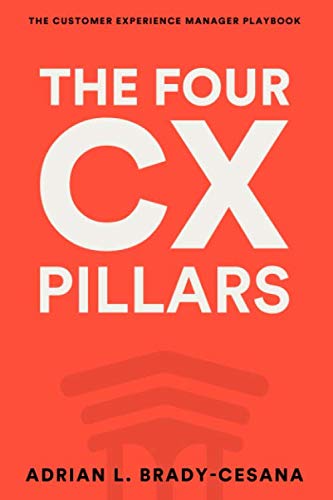Customer experience permeates everything you do
Every phase of your projects, sales, implementation, service, and finance, all contribute to the experience your clients have when working with your integration company.
How does this align with your company values?
Are you shaping your client’s experience, or reactively responding to it when things go wrong?
How do you define an exceptional customer experience in your organization?
As Systems Integrators, understanding how you can shape, measure, and build a culture dedicated to a positive and lasting customer experience is key to building and maintaining your brand. In fact, CX can be more impactful to your brand than all your marketing efforts. If you aren’t actively working to provide your clients with the desired experience, you should be.
You need to be listening to the Voice of your Customer, because if you don’t, others will be, and the impact on your brand can be devastating.
Let’s start by defining what we mean by an exceptional customer experience
CX is the sum of a customer’s emotions, opinions, and perceptions when dealing with your company. Being subjective in nature, it is even more critical that we, as business owners, establish a Customer Experience Strategy to establish expectations (both for the client and for our team) as well as a plan to over-deliver on them.
It is important to note that Customer Experience is NOT the result of a survey (I am looking at you car dealerships who lobby for perfect scores while having some of the most negative customer impressions), nor is it the same as User Experience (UX).
The Voice of the Customer
It is critical that we recognize the power that our customers have.
Traditionally, when we would speak about “the voice of the customer” we were referring to the importance of listening to what our customers want, and striving to deliver the product and experience they wanted. Now, with the power of the internet and social media, the voice of the customer is even more powerful.
Jeff Bezos once said, “If you build a great experience, customers will tell each other about that. Word of mouth is very powerful.”
The first takeaway is that he is referring to BUILDING a great experience. It must be strategically curated and built by the organization. Left to nature, it is very unlikely that the client will have a consistently great experience.
What Bezos leaves unstated is that if you provide a less than exceptional experience (it doesn’t even have to be “Bad”) customers will tell each other about that as well. Studies show that only 1 in 26 unhappy clients will say something to you. They are far more likely (52% more likely) to share their negative experience on social media or some other review site.
If our dissatisfied clients are the most vocal, why would we not want to get out in front of this potential branding nightmare and formulate a CX strategy that would dramatically reduce the number of potentially unsatisfied customers?
Brand Strategy
Your brand is how you are identified and perceived in the marketplace.
Your brand started when you selected the name for your company and has been evolving ever since. Developing a CX strategy is critical to building and shaping your brand. Your brand is shaped as much by the perception of your clients and potential clients as it is by your intent.
It is important to ask yourself if your brand strategy includes the concept of providing an exceptional customer experience, and if it is included, are you actually delivering it.
Measuring Customer Experience
If you are truly committed to providing a great experience, your CX strategy must include measuring that experience through customer feedback.
As mentioned earlier, customers are very likely to share their experiences with your company (particularly negative experiences) on social media and websites. It is important to monitor social media for posts about your company and react to those posts. Thank clients who post positively about your company. When finding negative posts about your company, take the opportunity to, if possible, follow up with the client offline and see if you can improve their experience. Regardless of your ability to follow up with customers, it is important to note all feedback, review it, and take appropriate action to align your team’s efforts with creating the customer experience you would like to create.
Clients, and potential clients, have multiple touchpoints with your company. It is important to measure all of these touchpoints along the client journey. Understanding the client’s experience during the sales process (whether you successfully close the opportunity or not) is just as important as understanding their experience at the end of an installation.
It is also important to request and measure feedback regarding service interactions as well as billing inquiries. One often overlooked customer touchpoint is evaluating the CX when using your website, client portal, or even your phone system.
How easy is it for the client or prospect to do business with you?
Does their experience at each of these touchpoints measure up to your expectations?
You can gather this feedback using online tools like Survey Monkey, through simple email questionnaires, or through direct phone calls. However you choose to request this feedback, it is critical that you listen to it with an open mind and look for opportunities to make your company provide an even better experience for your customers. First, respond to everyone who answers your survey or questionnaire thanking them for their honest feedback.
For feedback that makes you uncomfortable, be willing to get more uncomfortable by requesting a conversation between a representative of your leadership team and the dissatisfied client. This is where you will find the best opportunities for your organization’s growth. It may also help change the client’s perspective of your company.
Conclusion
When you develop and execute an exceptional customer experience strategy, you are building the future of your company. You are developing and maintaining your brand and reputation. You are establishing the ability to proactively address customer concerns and issues, thereby creating more satisfied customers. Satisfied clients are not only most likely to be repeat customers, but they are also great referral sources for new clients.
Investing in a CX strategy will help your company not only retain existing clients but grow your revenue with them. It will be a foundation upon which you can add new key clients to your portfolio, and it will enable you to strategically increase both your revenue and your bottom line.
If you don’t have a CX strategy today, what is stopping you from developing one?








